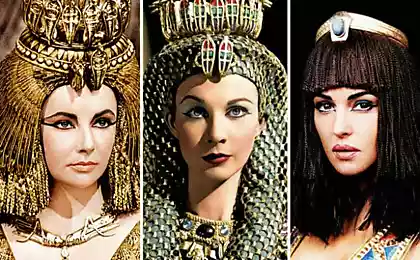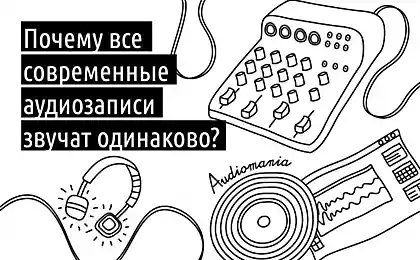2249
Originally from the Nile Valley
Eye Makeup
Since the first application (about 4000 BC. Oe.) Eye makeup never ceased to be relevant. To create beauty mascara master used a mixture of the mineral galena with carbon black (for black) or with malachite (for green tint).
Makeup in ancient Egypt was not exclusively a female attribute. Acting as a status indicator, up eyes isolated representatives of noble estates. Also, the Egyptians believed that properly applying makeup to protect against disease and evil eye.
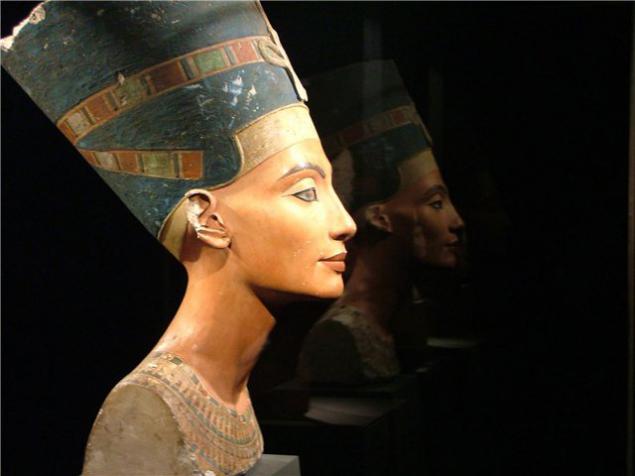
Writing
In ancient drawings that tell about something, were natural thing, but their systematization in a universal language was the invention is of ancient Egypt. The first such characters appeared about 6000 years BC. e., were icons representing real objects. Over time, they become more complex elements appear similar signs of the alphabet and auxiliary parts to express more abstract concepts.
Nowadays the ancient Egyptian civilization is strongly associated with long narratives of the hieroglyphics on the walls of the pyramids. Thanks to them, we know so many details about the life of this amazing nation.
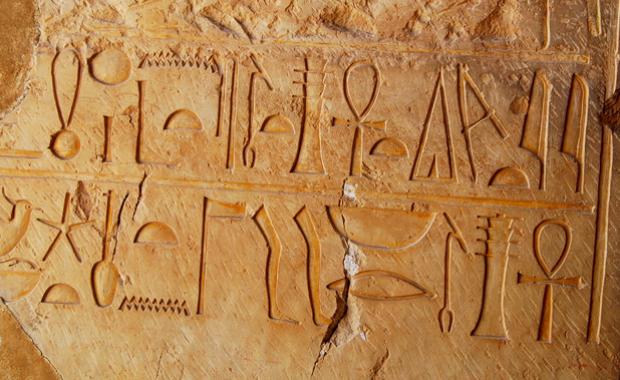
Sheets of papyrus
All agree with unconditional significance invention of paper in China around 140 BC. e. However, for a thousand years before the Egyptians decided this question is not less elegant learned to handle fiber plants, grown in abundance along the banks of the Nile. Using sheets of papyrus for writing, creating clothing and sails, they took to the advanced level of the industry at the time. Keeping development technologies in secret, Egyptians successfully traded this material throughout the region.
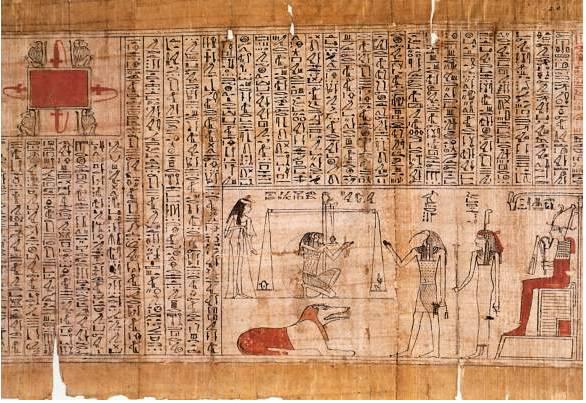
Calendar
The significance of the calendar for the modern man, the functions conferred on it by reminders of holidays and scheduled visits, lost before its crucial importance for the ancient Egyptian. For the last calendar was the source of knowledge about the flooding of the Nile, the change of seasons, and other key moments in life. Such a necessary thing was invented around 1000 BC. e.
Calendar consisted of three seasons: flood, growth and harvest, each of which lasted for four 30-day months. In total, almost familiar to us was obtained from the sum of 360 days. Adding annually by 5 days allotted for religious holidays, Egyptians brought their system to modern standards.
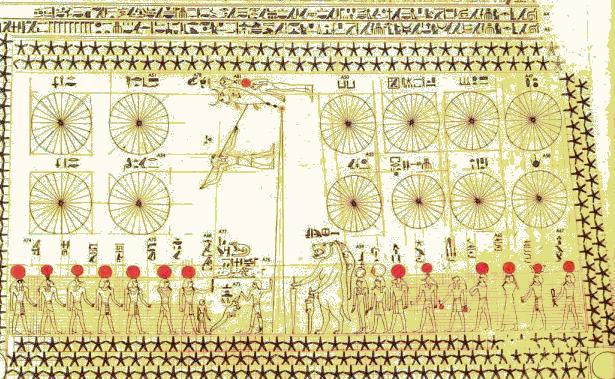
Plow
Most evidence indicates that the first device that allows you to plow fields, appeared in Egypt around 4000 BC. e. Of course, the first mechanisms were quite weak on the effects on the soil and created on the basis of hand tools, but they have made a huge contribution to the improvement of agriculture. Even more significant step Egyptian Agriculture did when around 2000 BC. e. People guessed used as a driving force for the construction of the oxen.
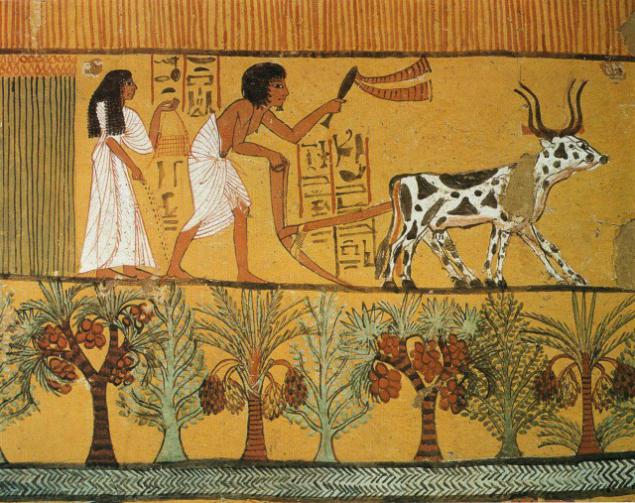
Breath freshener
As modern people, the ancient Egyptians sometimes suffer from halitosis. His appearance helped numerous infections of the mouth. In ancient Egypt was quite the development of medicine, but, alas, dentists had not yet appeared. As a result, people had to endure the toothache from year to year. Such findings leads to the study of mummies, including healthy teeth were a rarity even among the young. To somehow disguise the unhealthy condition of the oral cavity and the accompanying smell, the Egyptians invented the granules, which combined cinnamon, frankincense, myrrh and honey designed to give breath pleasant aroma.
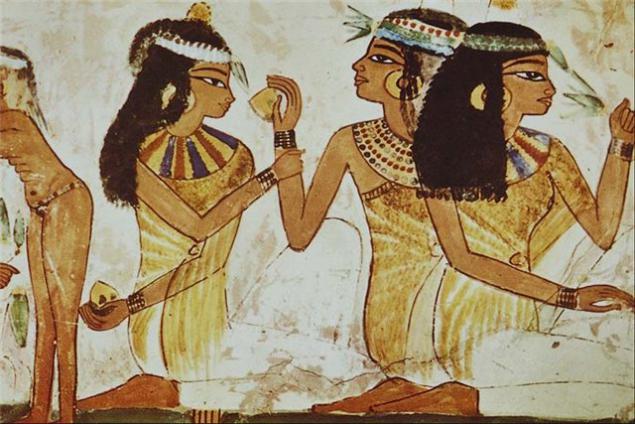
Bowling
90 km south of Cairo, archaeologists discovered a curious room equipped with tracks and storing a large number of balls of different sizes. In the middle of each track (which had a length of 3 to 9 m) was located square hole. Conditions of ancient game differed from the modern bowling, participants aim was to throw a different size balls in the hole while trying to stay on course "instrument" of the enemy.
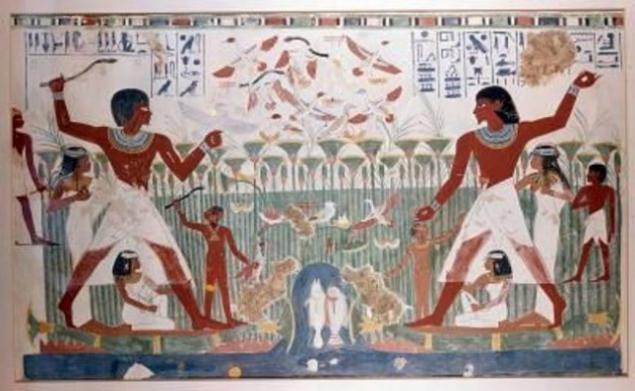
Haircuts and shaving
For hygienic reasons, living in hot climates people formed the first in the history of fashion for short hairstyles. Long hair and beards were considered a sign of the lower classes. Egyptians introduced the world barber profession: master of the craft used sharpened stone, and, with the advent of new technologies, and copper blades. And yet, in spite of the prevailing trends, especially the nobles liked to wear wigs and even artificial whiskers, making them particularly stylish appearance.
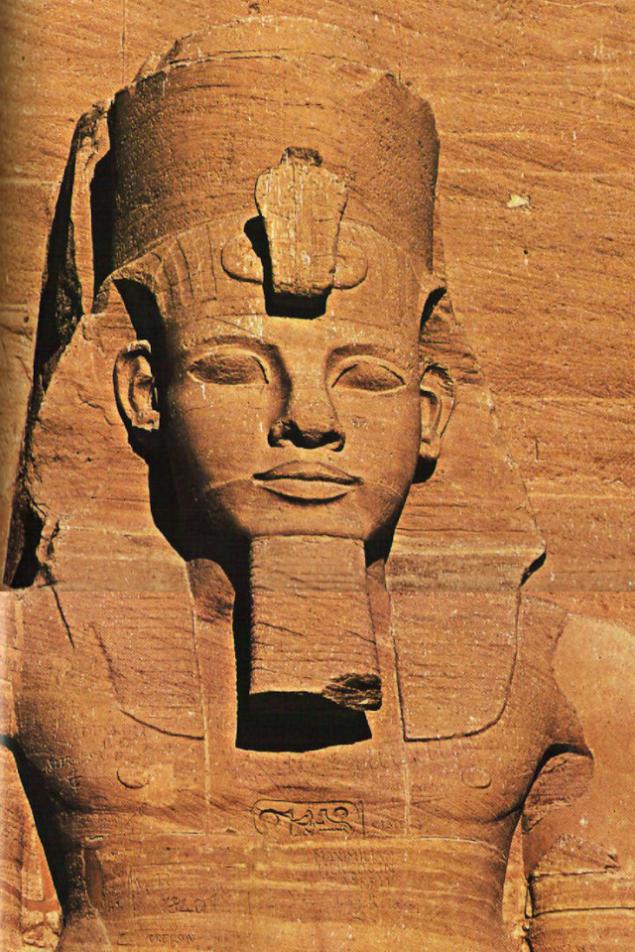
Door locks
The very first door lock was discovered in Egypt. A device of this mechanism includes a 60-inch bolt that connects to the contacts on the door jamb. The discovery was made using specially selected key. Inserted into the hole, he presses on contacts and releases the locking bolt the door. Careful device has only one drawback - the excessive massive, however, given the security provided by a lock, you can dismiss it.
Toothpaste
In the field of ancient Egyptian graves, archaeologists often find toothpicks. Also, residents of Ancient Egypt is credited use toothbrushes (wooden sticks, split ends). But especially the success achieved by representatives of the wise civilization in creating materials for dental care. Recently, during the excavations were found recipes and instructions for use of a "Means for perfect white teeth", includes in its membership the rock salt, mint, dried iris flowers and black pepper.
©
Since the first application (about 4000 BC. Oe.) Eye makeup never ceased to be relevant. To create beauty mascara master used a mixture of the mineral galena with carbon black (for black) or with malachite (for green tint).
Makeup in ancient Egypt was not exclusively a female attribute. Acting as a status indicator, up eyes isolated representatives of noble estates. Also, the Egyptians believed that properly applying makeup to protect against disease and evil eye.

Writing
In ancient drawings that tell about something, were natural thing, but their systematization in a universal language was the invention is of ancient Egypt. The first such characters appeared about 6000 years BC. e., were icons representing real objects. Over time, they become more complex elements appear similar signs of the alphabet and auxiliary parts to express more abstract concepts.
Nowadays the ancient Egyptian civilization is strongly associated with long narratives of the hieroglyphics on the walls of the pyramids. Thanks to them, we know so many details about the life of this amazing nation.

Sheets of papyrus
All agree with unconditional significance invention of paper in China around 140 BC. e. However, for a thousand years before the Egyptians decided this question is not less elegant learned to handle fiber plants, grown in abundance along the banks of the Nile. Using sheets of papyrus for writing, creating clothing and sails, they took to the advanced level of the industry at the time. Keeping development technologies in secret, Egyptians successfully traded this material throughout the region.

Calendar
The significance of the calendar for the modern man, the functions conferred on it by reminders of holidays and scheduled visits, lost before its crucial importance for the ancient Egyptian. For the last calendar was the source of knowledge about the flooding of the Nile, the change of seasons, and other key moments in life. Such a necessary thing was invented around 1000 BC. e.
Calendar consisted of three seasons: flood, growth and harvest, each of which lasted for four 30-day months. In total, almost familiar to us was obtained from the sum of 360 days. Adding annually by 5 days allotted for religious holidays, Egyptians brought their system to modern standards.

Plow
Most evidence indicates that the first device that allows you to plow fields, appeared in Egypt around 4000 BC. e. Of course, the first mechanisms were quite weak on the effects on the soil and created on the basis of hand tools, but they have made a huge contribution to the improvement of agriculture. Even more significant step Egyptian Agriculture did when around 2000 BC. e. People guessed used as a driving force for the construction of the oxen.

Breath freshener
As modern people, the ancient Egyptians sometimes suffer from halitosis. His appearance helped numerous infections of the mouth. In ancient Egypt was quite the development of medicine, but, alas, dentists had not yet appeared. As a result, people had to endure the toothache from year to year. Such findings leads to the study of mummies, including healthy teeth were a rarity even among the young. To somehow disguise the unhealthy condition of the oral cavity and the accompanying smell, the Egyptians invented the granules, which combined cinnamon, frankincense, myrrh and honey designed to give breath pleasant aroma.

Bowling
90 km south of Cairo, archaeologists discovered a curious room equipped with tracks and storing a large number of balls of different sizes. In the middle of each track (which had a length of 3 to 9 m) was located square hole. Conditions of ancient game differed from the modern bowling, participants aim was to throw a different size balls in the hole while trying to stay on course "instrument" of the enemy.

Haircuts and shaving
For hygienic reasons, living in hot climates people formed the first in the history of fashion for short hairstyles. Long hair and beards were considered a sign of the lower classes. Egyptians introduced the world barber profession: master of the craft used sharpened stone, and, with the advent of new technologies, and copper blades. And yet, in spite of the prevailing trends, especially the nobles liked to wear wigs and even artificial whiskers, making them particularly stylish appearance.

Door locks
The very first door lock was discovered in Egypt. A device of this mechanism includes a 60-inch bolt that connects to the contacts on the door jamb. The discovery was made using specially selected key. Inserted into the hole, he presses on contacts and releases the locking bolt the door. Careful device has only one drawback - the excessive massive, however, given the security provided by a lock, you can dismiss it.
Toothpaste
In the field of ancient Egyptian graves, archaeologists often find toothpicks. Also, residents of Ancient Egypt is credited use toothbrushes (wooden sticks, split ends). But especially the success achieved by representatives of the wise civilization in creating materials for dental care. Recently, during the excavations were found recipes and instructions for use of a "Means for perfect white teeth", includes in its membership the rock salt, mint, dried iris flowers and black pepper.
©






















